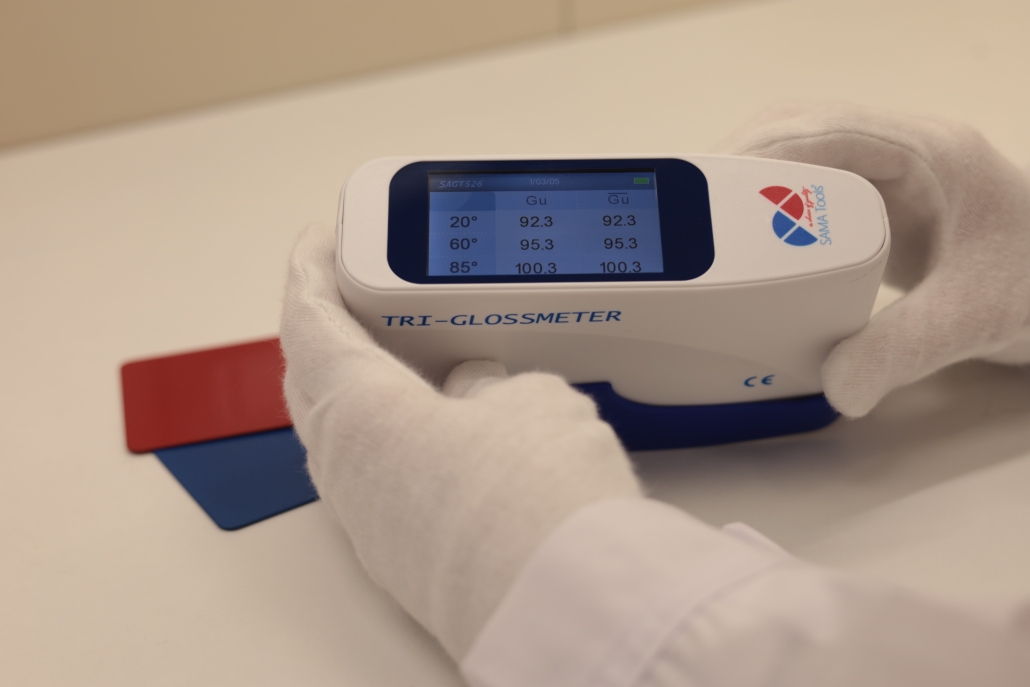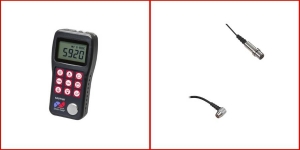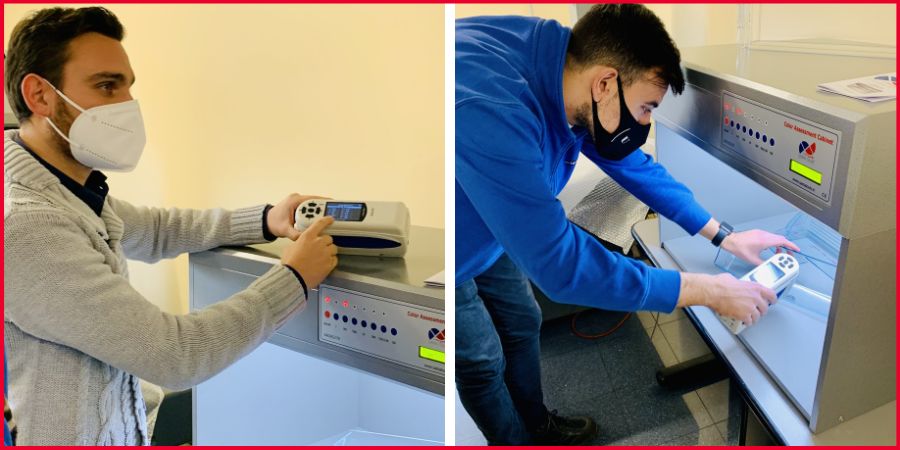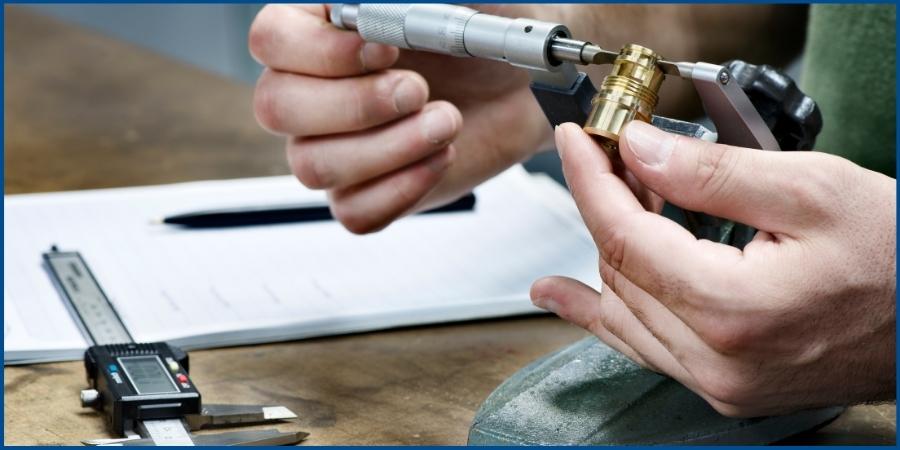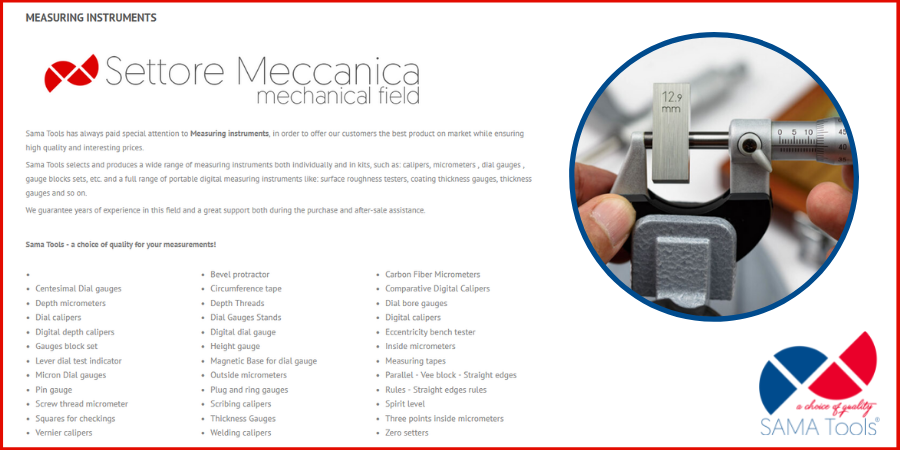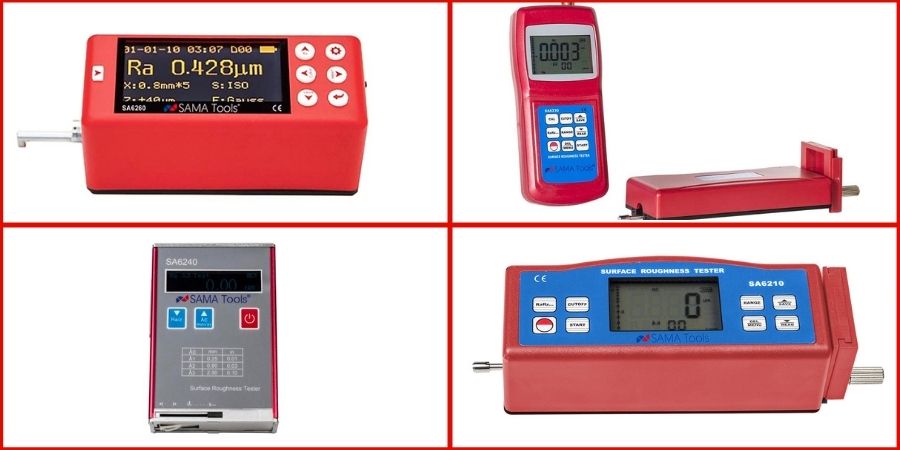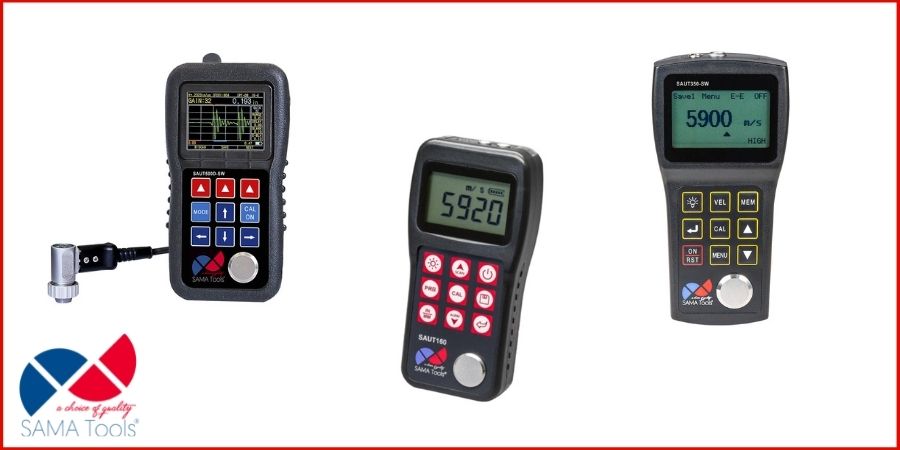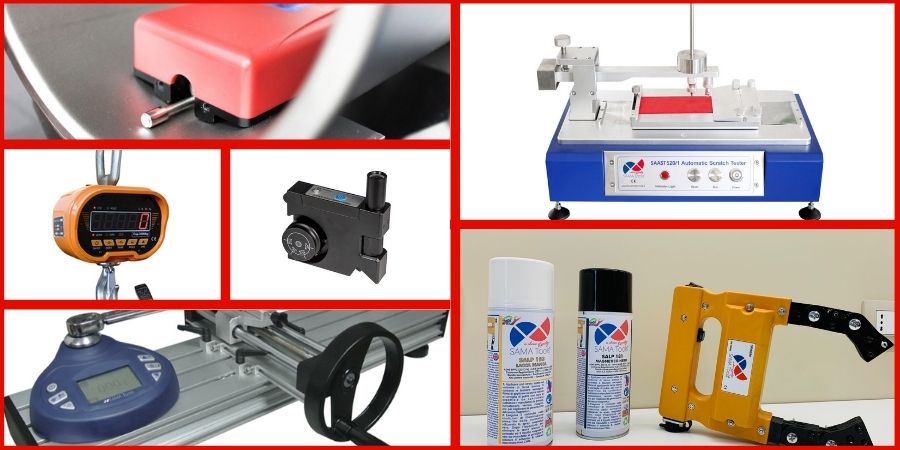Bench hardness testers are essential tools used in the quality control industry and used to evaluate the hardness of materials by way of indentation tests. These tools allow you to apply a fixed load for a certain period of time on an indenter, which comes into contact with the testing sample.
Features of the SAMA Tools bench hardness testers
S.A.M.A. Italia is an Italian company that specializes in the manufacturing of measuring instruments. It offers a wide range of high quality portable and bench hardness testers, including various models like Brinell, Rockwell and Vickers. This vast range of products allows customers to choose the model that best suits their hardness measuring needs.
SAMA Tools name-brand bench hardness testers are supplied with a first calibration report, which guarantees the accuracy of the measurements immediately from the moment of purchase. Furthermore, the customer can request periodic calibrations to be done on the instrument, when needed. Routine calibration is an important practice in order to maintain maximum precision of the instruments over time.
The different kinds of bench hardness testers
Bench hardness testers are classified according to the test method used. SAMA Tools offers several options to choose from:
Brinell Hardness Tester
The Brinell hardness tester is the most widely used method for measuring hardness in the industry. This method involves applying a force load to the sample surface using a steel ball indenter. This hardness tester offers a wide range of loads and indenters, allowing one to measure any type of metal.
Rockwell Hardness Tester
The Rockwell hardness tester is a more versatile method which uses a conical diamond indenter or a steel ball. This method offers an automated and fast solution, suitable for samples made of different materials and shapes.
Vickers Hardness Tester
The Vickers hardness tester is used for microhardness and can measure solid and metallic materials of various hardnesses. It uses a square-based pyramid indenter and offers a wide range of test loads. This hardness tester is ideal for laboratory testing.
A video of one of our multiscale bench hardness tester models
Factors to consider when choosing a hardness tester
Several factors must be taken into consideration when choosing the right bench hardness tester:
Test load
The test load that is applied depends on the hardness of the material to be tested. SAMA Tools offers bench hardness testers that allow test loads ranging from 500 kgf up to 3,000 kgf. A higher test load corresponds to higher measurement accuracy.
Hardness range
The type of indenter to be used depends on the hardness range of the materials to be tested. SAMA Tools offers a variety of diamond or steel indenters, suitable to be used for various hardnesses on different materials.
Accuracy
The accuracy level depends on the characteristics of the measuring surface, such as cleanliness, levelness and static or dynamic measuring systems. SAMA Tools supplies bench hardness testers with high measuring accuracy and reliability.
Versatility
The versatility of the hardness tester is important, considering the shape and size of the samples to be tested. SAMA Tools offers versatile solutions that can be adapted to different sample shapes and sizes.
Pre- and post-purchase supplier assistance for hardness testers
Support and assistance from suppliers is crucial when purchasing measuring instruments, such as bench hardness testers.
S.A.M.A. Italia offers complete assistance, both pre-and post-sale. Before purchasing, our team of technicians is available to provide personalized advice on selecting the bench hardness tester that best suits your needs. Our expertise and experience in the sector allows us to recommend the ideal bench hardness tester model based on the material to be tested, the required hardness scale and other technical specifications.
Once you make your purchase, our commitment to post-sales service continues. We make sure that your bench hardness tester is working properly and is accurately calibrated. In case there are doubts, questions or a need for technical support, our team of experts is always ready to respond and offer suitable solutions.
We make sure that you’re completely satisfied and we strive to provide continuous and professional assistance.
The trust placed in our company is attested by the large number of customers, including important multinational groups, who have chosen to work with us.
Check out our testimonials page here!
Hardness tester calibration and personalized training courses
S.A.M.A. Italia always does its best to offer a complete package to its customers. In addition to regular and onsite calibration services, S.A.M.A. offers the option of having the newly purchased hardness tester, including calibration, delivered anywhere in the world.
As already mentioned, carrying out regular calibrations allows one to maintain the maximum precision of measurements over time and ensures that the instruments are always aligned, guaranteeing reliable and consistent results.
Furthermore, our clients can depend on us to train their quality control personnel. Quality training is a fundamental element to ensure correct management and use of hardness testers. S.A.M.A. Italia provides personalalised training courses for company staff, in order to maximize the efficiency and accuracy of the measurements made with the instruments.
Through training courses, we ensure that company personnel is properly trained and is capable of correctly using the bench hardness testers and understanding different testing methods, such as Brinell, Rockwell and Vickers. During the courses, detailed information on the features and functionality of the instruments is provided, as well as best practices for obtaining accurate and repeatable measurements.
Contact us at sales@samatools.it to get more details on the courses that are available, such as duration, content and how to participate.
Portable or bench hardness testers?
The choice between portable and bench hardness testers depends on the specific application that is needed. The SAMA Tools bench hardness testers like the Brinell, Rockwell and Vickers models, ensure precise and reliable measurements. On ther other hand, portable hardness testers are more convenient thanks to their compact size and their ability to test materials without needing to depend on a sample.
We’ve written another article about these two types of hardness testers. You can read more about it here: Portable or bench hardness tester: the challenge
In conclusion, S.A.M.A. Italia is an Italian company that specializes in manufacturing measuring instruments for quality control and offers high quality bench and portable hardness testers, among a vast array of other instruments.
By purchasing a SAMA Tools name-brand hardness tester, you’re sure to receive a precise and high-quality measuring device with a first calibration certificate already included.
Furthermore, upon request, our technicians can arrange a completely personalized training course. With such a wide range of hardness testers, SAMA Tools guarantees the choice of the most suitable model for your needs based on test load, hardness range, level of precision and versatility of the device.
How to reach S.A.M.A. Italia
or
Call us at: (+39) 0584/392342 – 392453

